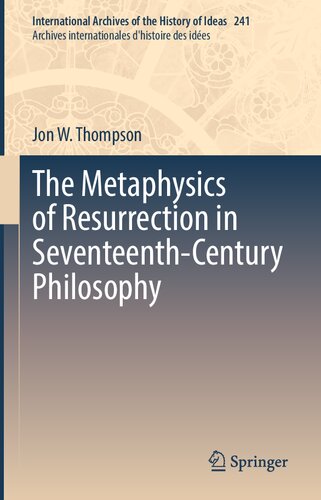

Most ebook files are in PDF format, so you can easily read them using various software such as Foxit Reader or directly on the Google Chrome browser.
Some ebook files are released by publishers in other formats such as .awz, .mobi, .epub, .fb2, etc. You may need to install specific software to read these formats on mobile/PC, such as Calibre.
Please read the tutorial at this link: https://ebookbell.com/faq
We offer FREE conversion to the popular formats you request; however, this may take some time. Therefore, right after payment, please email us, and we will try to provide the service as quickly as possible.
For some exceptional file formats or broken links (if any), please refrain from opening any disputes. Instead, email us first, and we will try to assist within a maximum of 6 hours.
EbookBell Team

5.0
100 reviewsThis book provides a new account of the emergence of the philosophy of personal identity in the early modern period. Reflection on personal identity is often thought to have begun in earnest with John Locke’s famous consciousness-based account, published in the 2nd Edition of the Essay in 1694. The present work argues that we ought to understand modern notions of personal identity, including Locke’s own, as emerging from within debates about the metaphysics of resurrection across the seventeenth century. It recovers and analyses theories of personal identity and resurrection in Locke and Leibniz, as well as largely-forgotten theories from the Cambridge Platonists, Thomas Jackson, and Francisco Suárez. The book narrates a time of radical change in conceptions of personal identity: the period begins with a near-consensus on hylomorphism, according to which the body is an essential metaphysical part of the person. The re-emergence of platonism in the period then undermines the centrality of the body for personal identity, and this lays the groundwork for a more thoroughly ‘psychological’ account of personal identity in Locke. This work represents the first scholarly study to thoroughly situate early modern conceptions of personal identity, embodiment, and the afterlife within the context of late scholasticism. Finally, due to its focus on the arguments of the authors in question, the work will be of interest to philosophers of religion as well as historians of philosophy.